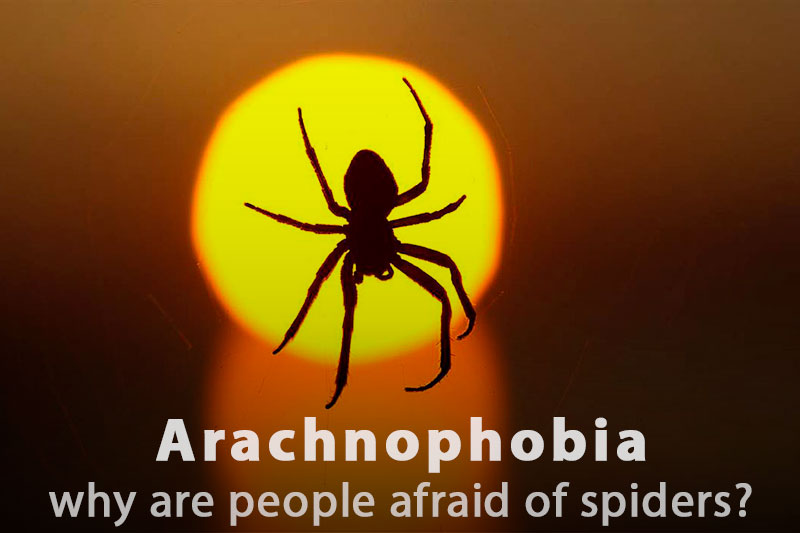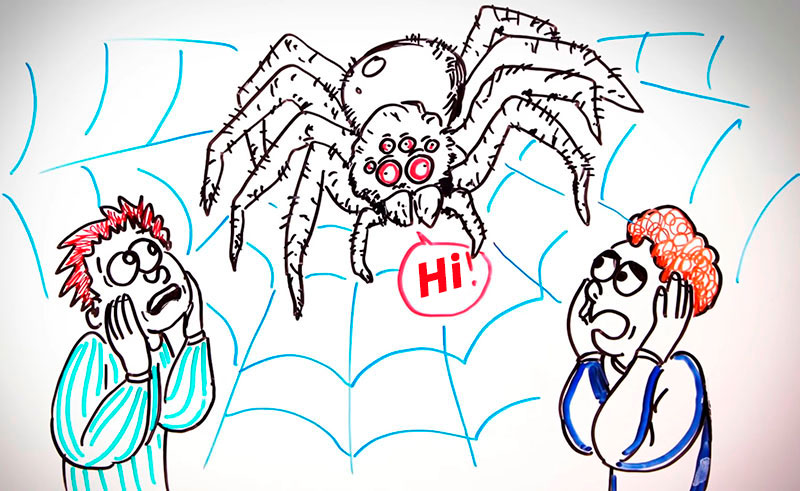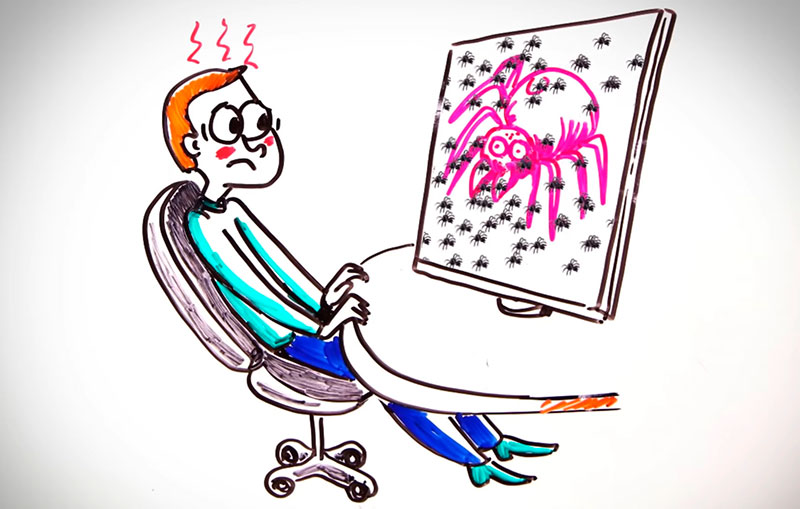Spiders! Some people find spiders exotic and even cute, while others hate and fear them to death. Why is it so? Is this fear worth it? Can one overcome this phobia, and if so, how? People of different sciences—from psychology to anthropology — have looked into details of the spider fear issue and are willing to share their findings.

A scientific term for this phenomenon is arachnophobia.
According to statistics, about 3–6% of the world's population fears spiders. In fact, there are more arachnophobes among Europeans than, for example, Asians.
The most likely reason is inherited memory: poisonous spiders posed a danger to our ancestors; thus, we learned this fear through generations.
Indeed, it can be battled with the help of confrontational therapy.
Arachnophobia stands for a phobic reaction to spiders. Like the vast majority of medical terms, it comes from Greek roots: arachnid or "spider" and phobia or "fear." Consequently, those who suffer from arachnophobia are called arachnophobes. One sight of an alive spider, a picture or photo of it, or even its web or eggs in some cases, are able to trigger immense discomfort for such people. They start sweating, their heartbeat races, and some even go faint.
Why are we fearful of spiders? It still keeps being a very curious and controversial question. There are different theories about arachnophobia reasons and its origins, including:
The first version lies in the fact that in many countries, spiders symbolize evil in the first place. We face arachnids in numerous cartoons, fairy tales, and legends, and they are always doomed to play villains. No wonder those kids who grow up on such tales will get arachnophobia.
The second probable origin is a personal experience. This kind of phobia has to do with a traumatic childhood encounter with a spider. Imagine a huge and scary spider descending from the ceiling onto a baby's pillow in a crib, landing right next to their face, and getting to examine the territory. This definitely would disturb even an adult. As for a child, it's even worse—it might mean a lifelong phobia. The first fear will likely go away soon after but will leave a gall in a child's mind.
The final third reason is evolutionary. It seems to be the most realistic. It's about our distant ancestors who had a more intimate connection with nature than we do and had routine encounters with spiders. And, as you know, many spiders are toxic. If a spider’s bite was not fatal for a human right away, surely it prostrated them. And it was the time when the weak and sick could either die of hunger or become a sitting duck for predators. Unsurprisingly, the fear of these tiny but hazardous critters escalated into a subconscious family trait. In fact, those ancestors who feared spiders made it to maturity and propagation.
2017 was marked by an experiment on the fear of spiders. Its results were published in the Frontiers In Psychology journal. The survey involved a group of 16 infants aged 6 months. TV screens showed these children different pictures similar in design and size. The pictures of animals, fish, flowers, spiders, and snakes went one by one. Children’s response was the subject of close observation. The experiment showed no troubles with flowers, fish, and such dangerous animals as bears and rhinos. But as soon as babies saw photos of snakes and spiders, their pupils dilated, which attested to stress. This means children are subconsciously afraid of them early at such a young age when they have not yet soaked up stereotypes popular in society!
Hence, the experiment finding that children could hardly bear an individual encounter with a spider proved the validity of the evolutionary reason for the widespread arachnophobia — the fear is subconsciously inherited with the ancestor memory.
Then why are children not afraid of bears, who are clearly more dangerous for them than spiders? There is one explanation: our distant ancestors tend to correlate danger levels with the size of animals. The bear is huge and thus dangerous—this makes sense. All the same, the spider is tiny but can kill a human with one bite. It's about unpredictability, which is always frightening.
Arachnophobia is actually incredibly common. It tops the list of animal-related phobias, leaving far behind sharks, ants, birds, and any other creatures. Statistics show that 3–6% of people fear spiders globally!
Interestingly, arachnophobia spread ranges across the world. For example, there are a lot of arachnophobes in Europe. Whereas in Asia and South America, spider fear is a rare thing. The fact that locals eat spiders might be quite a plausible reason for this. That's right, these 8-legged creatures are a familiar dish in Cambodia, Papua New Guinea, Venezuela, China, and many other countries. It makes no sense to be afraid of your own dinner, especially if you've been used to eating spiders since childhood. This fact alone speaks to the cultural roots of arachnophobia.
Let's move on to one of the most burning questions of many arachnophobes — how to stop being afraid of spiders? There is one technique that has been worked out and tested a long time ago. It is called “confrontational therapy.” It involves frequent acts of direct facing of a person's phobia cause. The therapy dulls the feeling of fear over time until it's finally gone.
Afraid of spiders? Then pet this cutie animal, feed and watch it swaggeringly making a feast of fresh crickets from its terrarium.
Is this too extreme for you? You always make use of the latest scientific achievement — a visual simulation. It offers an option of depicting only parts of a spider on computer screens, step by step putting together a whole picture. This gradual demonstration of the phobia subject facilitates lowering fear and embracing its image first and a real spider itself after a while.
References: Links and sources